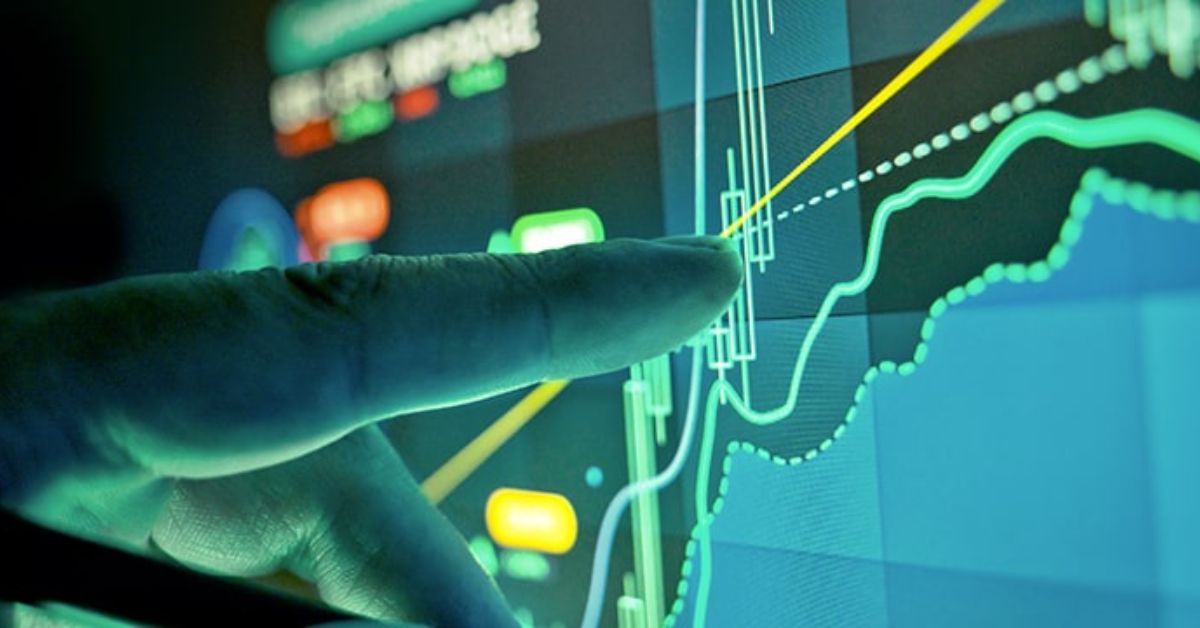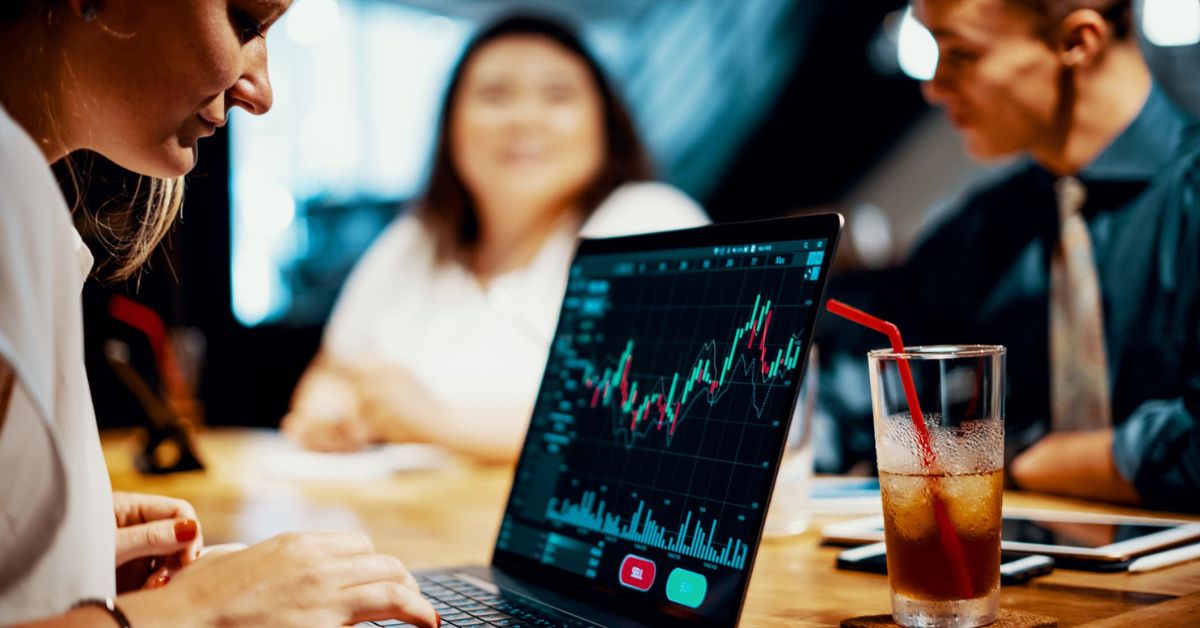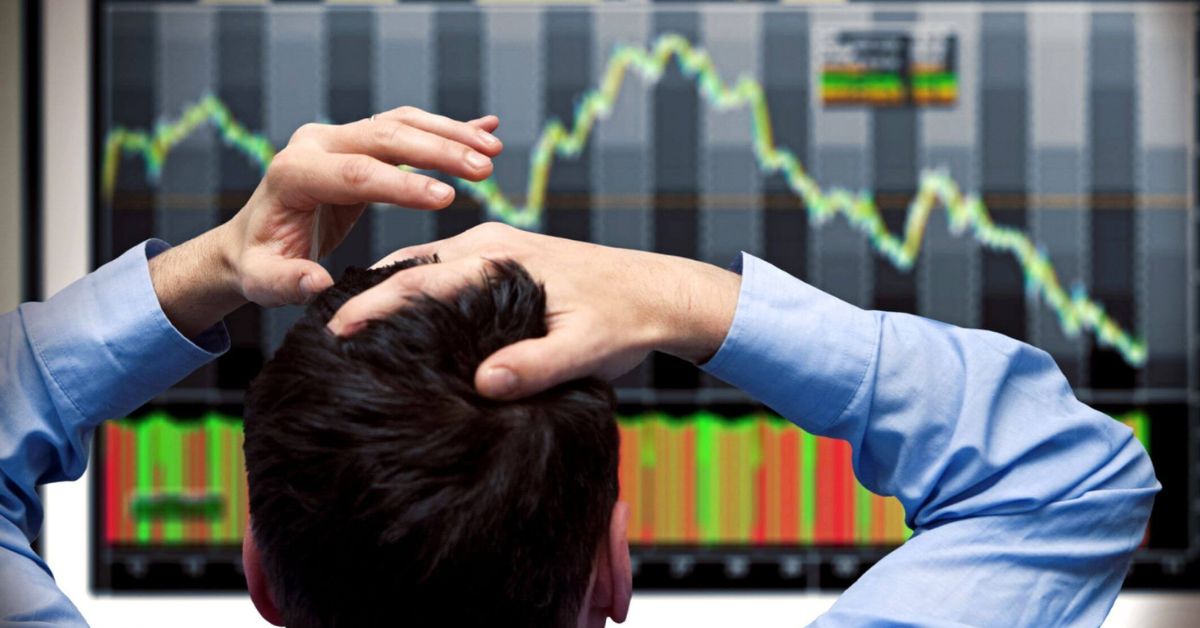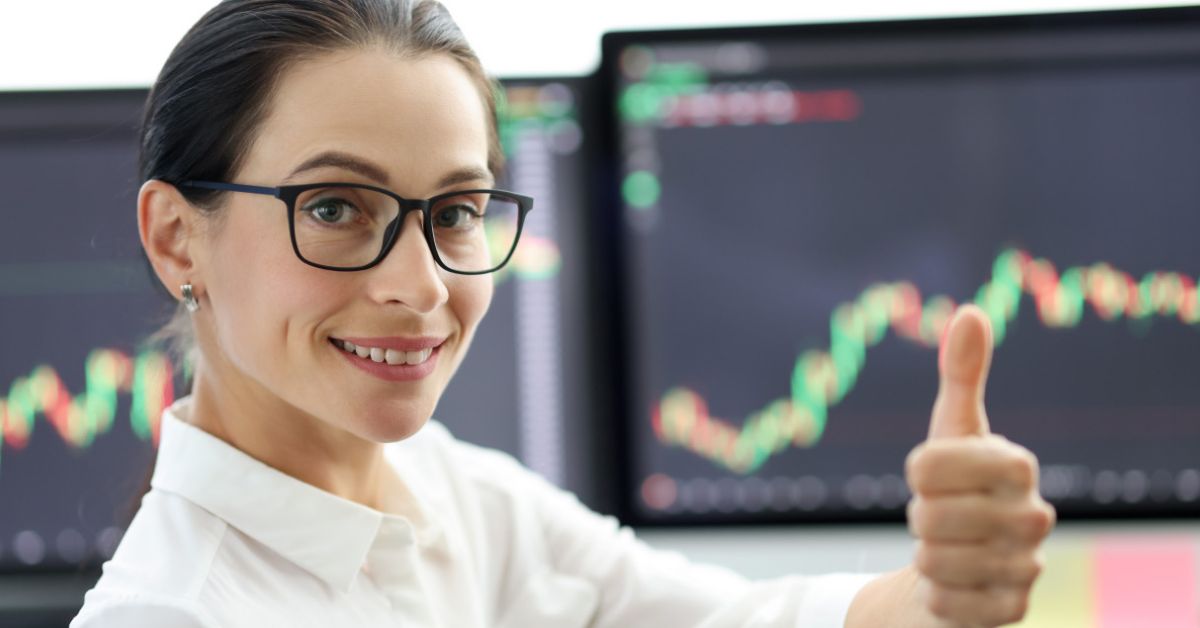Trading in financial markets can be highly rewarding, but it also comes with its fair share of risks. One significant risk factor is overconfidence, which can lead to poor decision-making and substantial losses. The key to success in trading is understanding and mitigating overconfidence. In this article, we will explore trading overconfidence examples and its impact on traders.
We’ll look at historical and contemporary cases, emphasizing self-awareness and risk management. Learning from past mistakes can help traders improve their strategies. Prime XBT, a reliable crypto trading platform, offers a variety of resources and tools to help traders make informed decisions.
The platform provide traders with comprehensive market data and advanced trading features. Trading within these resources can help keep things balanced and realistic. So, join PrimeXBT today! Use promo code PRIMEOTT to receive a +7% bonus on your deposit.
What is Overconfidence in Trading?

Overconfidence in trading is when traders overestimate their knowledge, skill, and ability to predict market movements. This cognitive bias can lead to significant financial losses. Psychologically, overconfidence is driven by several factors, including past successes and inherent cognitive biases.
Traders often attribute their success to skill rather than luck, reinforcing their confidence. Confirmation bias also plays a role, as traders seek information that confirms their existing beliefs.
This selective attention strengthens their overconfident mindset, making them more prone to risky decisions. The psychological roots of overconfidence are crucial for traders who want to mitigate its effects.
Common Signs of Overconfidence in Traders
Recognizing overconfidence is the first step towards addressing it. Some common signs include:
- Excessive Trading Frequency: Overconfident traders often trade frequently, believing they can predict short-term market movements accurately. This behavior increases transaction costs and risk.
- Ignoring Risks and Warnings: Overconfident traders tend to overlook potential risks and warnings, assuming they are less likely to experience significant losses.
- Overestimating Knowledge and Predictive Abilities: These traders believe they know more than they do and that their market predictions are highly accurate. This can lead to large, risky bets.
Causes of Trading Overconfidence
Several factors contribute to overconfidence among traders:
- Past Successes and Luck: When traders experience early success, they might attribute it to their skill rather than recognizing the role of luck. This false attribution reinforces their overconfidence.
- Confirmation Bias: Traders often seek information that supports their existing beliefs and ignore evidence that contradicts them. This selective attention strengthens their overconfident mindset.
- Over-reliance on Anecdotal Evidence: Personal stories of success, either their own or others’, can lead traders to overestimate the likelihood of positive outcomes in the future. This reliance on anecdotal evidence distorts their perception of risk.
Understanding these causes and signs of overconfidence can help traders counteract it. The psychological factors at play are essential for making informed and rational trading decisions.
Trading Overconfidence Examples

Overconfidence in trading can lead to significant financial losses and market disruptions. Examining historical and contemporary examples can help us understand how this cognitive bias manifests and impacts traders.
Historical Examples
The Dot-com Bubble: During the late 1990s, investors were overly optimistic about the potential of internet companies. This led to sky-high valuations, despite many companies having little to no profit. Traders believed the internet would revolutionize business, and they poured money into tech stocks without considering the risks.
When the bubble burst in 2000, many lost substantial amounts of money. This period is a classic example of overconfidence fueled by the hype and excitement surrounding new technology.
2008 Financial Crisis: Leading up to the financial crisis, there was widespread overconfidence in the housing market’s stability. Financial institutions and investors believed that housing prices would continue to rise indefinitely. This belief led to risky lending practices and the creation of complex financial instruments like mortgage-backed securities.
When the housing market collapsed, it triggered a global financial meltdown. Overconfidence in the stability of the housing market and the financial system played a significant role in this crisis.
Famous Traders and Overconfidence
Nick Leeson and Barings Bank: Nick Leeson was a trader whose overconfidence led to the collapse of Barings Bank. Leeson believed he could recoup trading losses through riskier bets, but his unchecked overconfidence led to massive unauthorized trades.
Eventually, his losses totaled £827 million, bankrupting the bank. Leeson’s story is a stark reminder of how overconfidence in one’s abilities can lead to catastrophic outcomes.
Long-Term Capital Management (LTCM): LTCM was a hedge fund managed by Nobel laureates and renowned economists. The fund’s managers were highly confident in their risk management models, believing they could predict market movements accurately.
However, in 1998, unexpected market events led to massive losses that the models did not account for. The overconfidence in their sophisticated strategies and risk management ultimately led to the fund’s collapse, requiring a bailout to avoid broader financial turmoil.
Contemporary Cases
Cryptocurrency Market Trends: The recent cryptocurrency market has seen many traders exhibit overconfidence, particularly during bull markets. For instance, during the Bitcoin surge in 2017 and again in 2021, many new investors entered the market, convinced of continuous price increases.
This overconfidence often led to significant financial losses when the market corrected. The volatility of cryptocurrencies can lure traders into a false sense of security, amplifying the effects of overconfidence.
Meme Stocks (e.g., GameStop): In early 2021, the GameStop stock frenzy saw traders, driven by social media hype, overestimate their influence on the market. Many believed they could sustain the stock’s price through collective buying, ignoring traditional market fundamentals.
This led to extreme volatility and substantial gains and losses for many involved. The event highlighted how overconfidence, fueled by community sentiment and social media, can impact market behavior.
Consequences of Trading Overconfidence

Overconfidence in trading can have serious repercussions on both financial and psychological levels. Traders who overestimate their abilities often face increased trading costs, magnified losses, and missed opportunities. Additionally, the long-term effects can include deteriorated risk management practices, damaged reputations, and financial instability.
Financial Consequences
Overconfident traders tend to overtrade, believing they can consistently predict market movements. This leads to higher transaction costs, including commissions, fees, and taxes. Over time, these costs significantly erode profits. Frequent trading often results in poor market timing, buying high and selling low, which compounds losses.
Overconfident traders take on larger, riskier positions, exposing themselves to greater potential losses. They may ignore stop-loss orders or fail to diversify their portfolios, concentrating investments in a few high-risk assets. During the dot-com bubble, investors who bet on tech stocks lost heavily when markets moved against them.
Overconfident traders may dismiss valuable information and opportunities, believing in their superior knowledge. They might ignore market signals, expert advice, or alternative investments that could enhance their portfolio. This tunnel vision leads to missed opportunities for profitable trades and less diversified strategies.
Psychological Consequences
The pressure to maintain successful trades can cause significant stress and anxiety. Fear of losing money or failing to meet expectations can impair decision-making abilities, leading to a cycle of poor performance and increased anxiety. The emotional toll can affect traders’ mental health and overall well-being.
Overconfident traders often experience cognitive dissonance when their beliefs about their trading abilities clash with market realities. This psychological discomfort arises from the conflict between perceived competence and actual performance. To resolve this, traders may rationalize losses or blame external factors, rather than learning from mistakes.
Overconfident traders may rely on instincts rather than rigorous analysis. This can lead to impulsive decisions based on emotions rather than data-driven strategies. While gut feelings can occasionally result in successful trades, they are generally unreliable and increase the risk of significant losses.
Long-term Effects on Trading Strategy
Overconfident traders often neglect essential risk management practices like setting stop-loss orders, maintaining a diversified portfolio, and following a disciplined trading plan. This erosion leads to increasingly risky behaviors and larger losses over time. Without proper risk management, even a few bad trades can have catastrophic impacts.
Persistent overconfidence and poor trading performance can damage a trader’s reputation and credibility. This is especially important for professional traders who rely on their reputation to attract clients or secure funding. A tarnished reputation limits future opportunities and hinders career progression.
Overconfident trading behaviors can lead to long-term financial instability. Traders who repeatedly suffer significant losses may deplete savings, incur debts, or face financial ruin. This instability affects not only their trading career but also their personal financial well-being and quality of life.
Preventing Overconfidence in Trading

Preventing overconfidence in trading is crucial for long-term success in the market. A winning streak can make traders feel invincible, which leads them to take unnecessary risks. It’s important to remain grounded and acknowledge the inherent unpredictability of the market to make informed decisions.
Self-Assessment and Awareness
Self-assessment is essential to prevent overconfidence in trading. Regularly evaluating your trades, strategies, and emotional state allows traders to stay grounded.
Self-reflection helps identify patterns of overconfident behavior, such as consistently taking larger risks after a few wins. Traders can avoid making rash decisions by acknowledging these tendencies. Keeping a trading journal can be an effective tool in this process.
Writing down thoughts and decisions helps traders evaluate whether their trades were based on logic or excessive confidence. The key is being honest with oneself about past mistakes and successes, fostering better decision-making in the future.
Develop Risk Management Strategy
A solid risk management strategy is crucial for preventing overconfidence in trading. Overconfident traders often ignore the importance of protecting their capital, which can lead to significant losses.
Stop-loss limits let traders automatically cut their losses when a trade doesn’t work out. Setting a risk-to-reward ratio also helps maintain a balance between potential gains and the risks involved. Traders should never risk more than a small percentage of their portfolio on any single trade. Our On Tilt Trading Store offers a stop loss calculator that will help you manage risk and maximize gains based on market data.
Diversification, or spreading risk across multiple assets, further reduces the likelihood of large losses. With a well-developed risk management strategy, overconfident behavior can be kept in check.
Focus on Long-Term Consistency Over Short-Term Gains
Focusing on long-term consistency is one of the best ways to avoid overconfidence. Many traders are tempted by the allure of quick profits, which can lead them to take on excessive risks. However, true success in trading comes from sustained, gradual growth.
Traders should set realistic, long-term goals and avoid chasing after immediate gains. When focusing on consistency, the emphasis shifts from making big profits to growing a portfolio steadily.
Small, consistent returns over time can compound, leading to greater success in the long run. Traders who maintain this mindset are less likely to be swayed by short-term wins and more likely to make measured, thoughtful decisions.
Seeking External Advice and Feedback
Seeking external advice and feedback is a powerful way to prevent overconfidence in trading. Often, traders become too wrapped up in their own views and stop considering alternative perspectives.
Traders can gain valuable insights from financial advisors, mentors, and experienced traders. These external sources can provide a more objective outlook and help challenge overconfident assumptions. Trading communities, whether online or offline, also offer opportunities for feedback and shared learning.
Engaging with others can help traders spot errors in their thinking and remind them of potential risks. Regularly seeking feedback keeps traders humble and helps them stay grounded, ultimately improving their decision-making.
Continuous Learning and Adaptation
Continuous learning and adaptation are key to preventing overconfidence in trading. The financial markets are constantly evolving, and traders must be willing to learn and adapt to new trends, tools, and strategies.
Overconfident traders often become complacent, thinking they have mastered the market, but this mindset can lead to poor decision-making. To stay sharp, traders should invest time in education, whether by attending webinars, reading books, or learning from past experiences.
Market conditions change, and new challenges arise, so ongoing education is essential for staying competitive. By committing to constant learning, traders avoid the trap of believing they know everything, helping to maintain a humble, informed approach to trading.
Read More: Key Trading Psychology Questions
Bottom Line
Overconfidence in trading can significantly harm a trader’s success, leading to risky decisions and unnecessary losses. Staying humble, managing risks effectively, and learning from past experiences can help traders avoid overconfidence pitfalls.
If you’re tired of losing money due to emotional decision-making, panic selling, or overtrading, we recommend the Vestinda trading app. Its automated crypto trading strategies can help you eliminate emotions from your trades and make more rational decisions.



